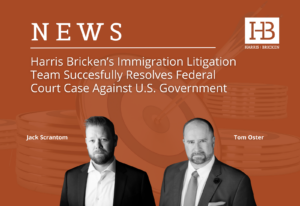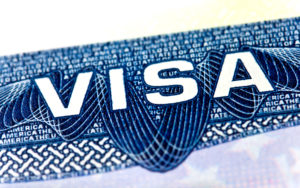The Naturalization Interview Civics Test
As an immigration attorney, I’ve witnessed countless clients embark on the long and enriching journey towards U.S. citizenship. From wide-eyed F-1 students to seasoned professionals and jet setting executives, their paths are as diverse as their countries of origin. Yet, there’s one hurdle that consistently throws a curveball – the naturalization interview civics test.
The irony is that many of these brilliant, accomplished individuals psych themselves out over a seemingly basic exam. They’ve lived in the U.S. for years, navigated its complexities, and contributed to its society. Yet, the pressure of the interview can turn a straightforward civics lesson into a mental labyrinth.
Here’s where I come in. Representing clients across the United States –from bustling West Coast metropolises in California, Oregon, and Washington to the rich cultural tapestry of the Eastern Seaboard in Massachusetts, New York, and Pennsylvania– has given me a unique perspective of just how remarkably consistent the naturalization process remains throughout the country. Immigration law is federal law, which means that a licensed and knowledgeable attorney can represent clients all across the United States. This experience allows me to assure my clients that the anxieties they face are common, regardless of their location.
Role-playing the naturalization interview is a powerful tool to demystify the test and boost confidence in my clients. Let’s delve into some common misconceptions and questions that trip up applicants, using role-playing scenarios to illustrate how they’ve likely known the answers all along!
Myth Busters: The Civics Test Isn’t a Trivia Showdown
There’s a misconception that the civics test is a barrage of obscure historical facts. Though some knowledge of American history is required, the core focus is on understanding how the U.S. government functions and the rights and responsibilities of citizens.
Scenario 1: Let’s Break Down the Branches of Government
Me (playing the USCIS officer): “Can you explain the three branches of the federal government?”
Client (nervous applicant): (Mind goes blank. Visions of a complex governmental flow chart dance in their head)
Here’s the reality: My clients likely encounter these branches every day without realizing it. The legislative branch makes laws (think Congress passing bills that affect their work or local community). The executive branch enforces those laws (the President and federal agencies implementing policies). The judicial branch interprets the laws and ensures they’re constitutional (courts settling disputes).
Empowerment Tip: I help them see it this way – they navigate these branches constantly. They might receive a speeding ticket (executive branch enforcing a legislative law). They might disagree with a neighbor and end up in small claims court (judicial branch). See, they’re already pros!
Making it Local: Separation of Powers in Action
Let’s take a local example. Imagine your client lives in a city with a bustling nightlife scene. Residents might petition the city council (legislative branch) to pass a noise ordinance. The mayor (executive branch) would then be responsible for enforcing that ordinance. But what if the ordinance seems overly restrictive? Local businesses could challenge it in court (judicial branch), ensuring a balance of power is maintained.
This is the separation of powers in action, a core concept tested in the civics exam. By grounding the explanation in a relatable local scenario, the anxiety surrounding the abstract term melts away.
Common Mistakes: Names Don’t Matter (as Much as You Think)
The civics test includes questions about prominent historical figures and documents. I advise my clients not to get bogged down trying to memorize every single name or date. Understanding the broader concepts is key.
Scenario 2: Bill of Rights Recall
Me (USCIS officer): “Which amendment in the Bill of Rights protects freedom of speech?”
Client (the applicant): (Frantically searching their memory for all ten amendments and their order)
The Key: They don’t need to recite the amendment number. Simply explaining the concept of free speech – the right to express your opinions without government censorship – is sufficient.
Empowerment Tip: I remind them of all those times they freely voiced their opinion online, at work, or even argued a point with a friend. That’s their First Amendment right in action!
The Finish Line and Beyond
The naturalization interview is the final step in a long and rewarding journey. Witnessing my clients reach this milestone is one of the greatest privileges of my profession. It’s a culmination of years spent navigating complex immigration processes, adapting to a new culture, and contributing to the fabric of American society.
Preparation is paramount, and there’s no substitute for a thorough understanding of the civics test and the interview process. Role-playing exercises provide a safe space to practice and build confidence. But beyond preparation, having an attorney present during the interview can offer invaluable comfort and peace of mind.
My presence during the interview not only demonstrates the client’s commitment to the process but also allows me to advocate on their behalf. I can take notes, offer clarification if necessary, and even present any relevant evidence to streamline the interview. The naturalization interview shouldn’t be a source of undue stress for clients. With the right preparation and support, they can approach it with confidence, ready to showcase their knowledge and take their rightful place as U.S. citizens.
























